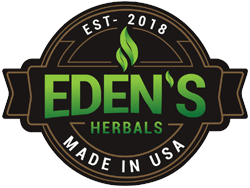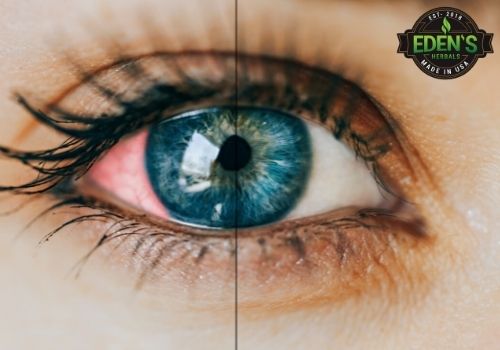 Red eyes can be a tell-tale sign of cannabis use. What about CBD though? Does CBD make your eyes red?
Red eyes can be a tell-tale sign of cannabis use. What about CBD though? Does CBD make your eyes red?
This post will look at the difference between THC and CBD, and if CBD makes your eyes red.
Why Doesn't CBD Make Your Eyes Red Like THC?
Unlike THC, CBD doesn't cause blood to flow to the eyes. THC dilates blood vessels and lowers blood pressure, which can leave the eyes red and irritated. If you look closely, you can even see tiny blood vessels begin to form in the eyes shortly after smoking marijuana.
THC's effectiveness at lowering built-up pressure has made it an effective treatment for glaucoma. While THC and CBD have much in common, some key differences might help address confusion between these two compounds.
Key Differences Between Smoking Marijuana and Using CBD
Evidence has shown widespread marijuana use for over 5,000 years. While smoking marijuana has been the traditional form of delivery, CBD has emerged as an effective alternative to THC in recent years. Even better, CBD provides the same beneficial properties as marijuana, except you won't get high.
CBD is Legal Nationally While Marijuana Laws Vary by State
In 2018, the U.S. Farm Bill was passed, which legalized hemp-derived CBD nationally. Things get a little murkier when discussing marijuana. Thirty-six states currently allow medical marijuana for the treatment of various conditions, including pain and seizures. Recreational cannabis is currently allowed in 18 states.
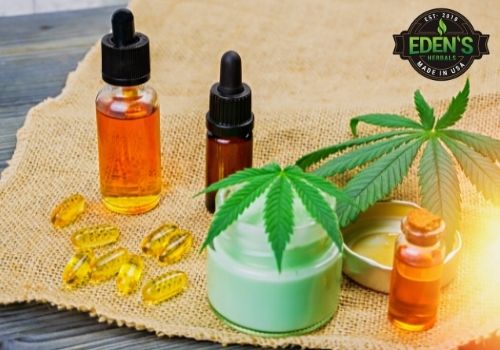 Psychoactive Effects
Psychoactive Effects
By law, CBD contains less than 0.3% THC, making it unlikely to get you "high." THC, however, interacts with receptors in the brain to produce a psychedelic effect and other issues such as red eyes and the "munchies."
Other Side Effects of THC
While CBD has no major side effects, smoking marijuana may leave users with the following issues:
- Impaired Motor Skills: Just like alcohol, marijuana and excessive THC consumption impair coordination.
- Dry Mouth: THC impairs the ability to produce saliva, resulting in "cottonmouth."
- An Intoxicated Feeling: THC can produce dizziness and headaches, in addition to altering your mind.
- Memory Loss: Marijuana users often report short-term memory loss and a feeling of time lapses.
- Rapid Heartbeat: Many users report general anxiety when smoking marijuana, often accompanied by a rapid heartbeat.
What is the Difference Between THC and CBD?
CBD, short for Cannabidiol, is one of over 100 compounds found in Cannabis Sativa. The two primary compounds in cannabis are THC and CBD, and are the compounds primarily responsible for the plant's health benefits.
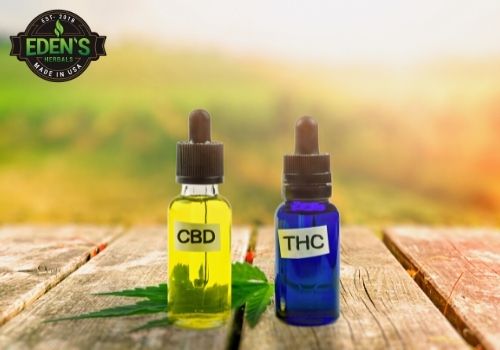 CBD is extracted from the hemp plant through a lab process, separating and isolating it from THC. The FDA has approved CBD for the treatment of epilepsy.
CBD is extracted from the hemp plant through a lab process, separating and isolating it from THC. The FDA has approved CBD for the treatment of epilepsy.
How Does CBD Work?
CBD, like THC, interacts with the body's Endocannabinoid System (ECS). The two central ECS receptors, CB1 and CB2, regulate many physiological biomarkers in the human body, most notably inflammation.
When ingested, cannabinoids present in CBD interact with the ECS to inhibit inflammation. By controlling inflammation, the root cause of most diseases, CBD may play a valuable role in treating many conditions.
Benefits of CBD
Because CBD is still relatively new, researchers are only scratching the surface of its potential benefits. Several studies, however, have shown CBD to help treat a wide range of diseases, including:
- Pain Treatment: Research conducted showed CBD to be potentially effective at treating neuropathic pain.
- Anxiety: CBD has shown potential in treating both anxiety and depression.
- Multiple Sclerosis: Many promising studies show CBD as a potential treatment for M.S. and its side effects. A review of 17 studies, for example, indicated improvement in spasticity in 3,161 participants.
- Acne: Because of its anti-inflammatory properties, CBD may treat acne by reducing sebum production.
- Alzheimer's: A study conducted by The National Institute of Health found that long-term CBD treatment in Alzheimer's disease transgenic mice prevented cognitive decline.
- May Improve Heart Health: Studies show CBD may help lower blood pressure.
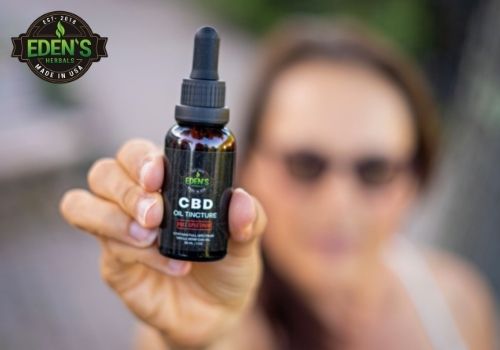 Is CBD Safe?
Is CBD Safe?
According to the World Health Organization, CBD is entirely safe and well-tolerated.
Before starting a CBD regimen, tell your doctor as it can interact with some medications. One study found that CBD may cause liver toxicity in substantial doses. Other side effects reported include:
- Appetite Changes
- Drowsiness
- Diarrhea
How Do I Know The CBD I Purchase Won't Make Me High?
It's essential you invest in a reputable CBD product, so you know what you're putting into your body. Apart from knowing you won't get high, a quality CBD product should also be able to provide you with 100% of its ingredients and THC levels.
One key consideration is finding out if the company provides any third-party or independent lab analysis of its product. A reputable CBD manufacturer will usually verify these reports on their website. You can also receive valuable feedback by looking at customer reviews. Most reputable CBD brands offer full-spectrum CBD oil, which gives users the entire spectrum of cannabis properties without making you high.
How To Consume CBD vs. THC
THC is typically consumed through smoking marijuana. There are also edibles, such as brownies, that are popular. CBD can be ingested in several ways, including:
- CBD Tinctures: CBD tinctures come in a wide variety of flavors and strengths. CBD oil is generally well-tolerated and infused with carrier oils, such as coconut or hemp oil.
- CBD Gummies: These CBD edibles are a convenient way for you to receive CBD's benefits.
- CBD Isolate: These are great additions for protein shakes, as they are flavorless and come in powder form. CBD isolates are also THC-free, making them ideal for people that are looking for pure CBD.
- CBD Topicals: Athletes particularly like CBD lotions and salves. CBD topicals are also a great way to relieve dry skin.
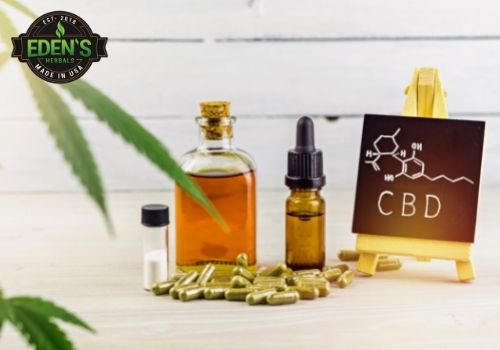 In Conclusion
In Conclusion
So does cbd oil make your eyes red? The short answer seems to be "no". The two primary compounds in marijuana are CBD and THC. They're both effective at treating many of the same diseases but differ on these key things:
- CBD won't make your eyes red, itchy, or dry.
- CBD won't get you high.
- By law, THC content in CBD is only 0.3%.
- You still receive all the medical benefits of THC and CBD without the high.
If you want to learn more about if CBD makes your eyes red, contact Eden's Herbals at support@edensherbals.com today!
*These statements have not been evaluated or approved by the Food and Drug Administration and are not intended to diagnose, treat or cure any illness. Medical advice should be taken from a medical professional.
All of the articles on this site are written by 3rd party content providers, expert bloggers or doctors not directly affiliated with Eden's Herbals.
Individuals should learn the risks and side effects prior to taking CBD. Make sure to always check with a medical professional before starting any new CBD treatment or medication that is not FDA approved.
